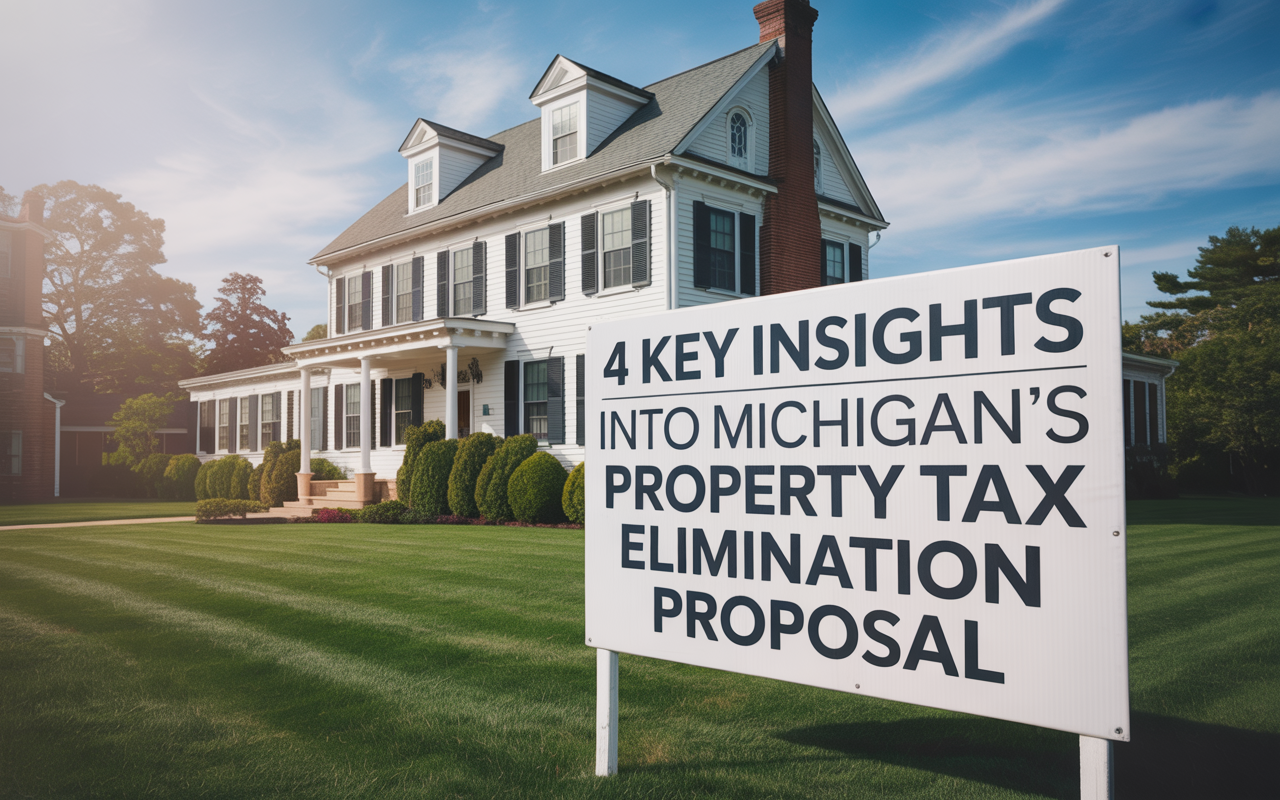The Cereal City Buzz
Archives
4 Key Insights into Michigan's Property Tax Elimination Proposal
SIGN UP FOR OUR NEWSLETTER
4 Key Insights into Michigan's Property Tax Elimination Proposal |
Understanding the Potential Impact of the Ax MI Tax Initiative |
Michigan's property tax elimination proposal is gaining momentum as organizers aim to place it on the November 2026 ballot.
This initiative seeks to abolish all property taxes statewide, a move that could significantly reshape funding for local governments and public services.
Here are four essential aspects to consider:
1. The Proposal Aims to Eliminate All Property Taxes
The Ax MI Tax initiative proposes a constitutional amendment to completely eliminate both commercial and residential property taxes in Michigan.
This includes taxes on real estate and personal property owned by individuals and businesses.
Proponents argue that this measure would alleviate financial burdens on property owners and stimulate economic growth.
2. Significant Revenue Losses for Local Governments and Schools
Property taxes are a primary revenue source for local governments, funding essential services such as schools, emergency services, and infrastructure.
Eliminating these taxes would remove approximately $20.4 billion in annual revenue statewide.
Critics warn that this could lead to severe budget shortfalls, potentially resulting in cuts to vital public services.
3. Proposed Replacement Funding and Its Limitations
To offset the loss of property tax revenue, the proposal suggests increasing the portion of state sales tax revenue allocated to local governments from 10% to 13%.
Additionally, it plans to redirect funds from state income, marijuana, alcohol, and tobacco taxes.
However, analyses indicate that these measures would not fully compensate for the revenue loss, leaving a significant funding gap for local services.
4. Increased Thresholds for Future Tax Increases
The initiative also proposes raising the approval requirements for future tax increases.
Local tax increases would require 60% voter approval, while state tax increases would need a two-thirds majority in the Michigan Legislature.
These higher thresholds could make it more challenging to implement future tax adjustments to address funding needs.
As the Ax MI Tax campaign continues to gather signatures to qualify for the 2026 ballot, it's crucial for Michigan residents to understand the potential implications of this proposal on local services and the state's fiscal health.
Engaging in informed discussions and staying updated on the initiative's progress will be essential in the coming months. |

